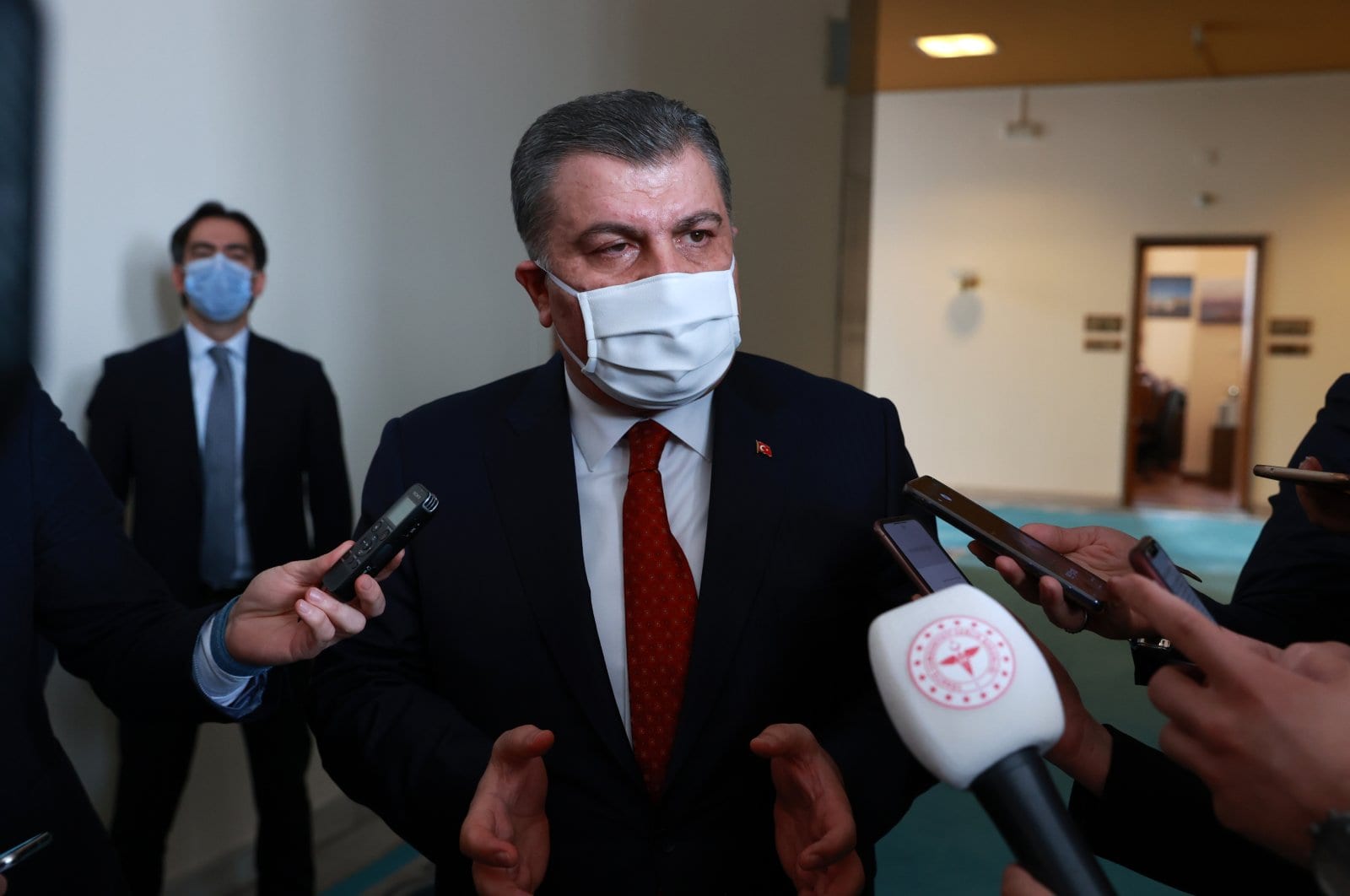Turkey will likely start administering the Pfizer-BioNTech coronavirus vaccine in the next few days, the nation’s health minister said Tuesday.
Speaking to reporters in Parliament in the capital Ankara, Fahrettin Koca said Turkey has so far received 2.8 million doses of the Pfizer-BioNTech vaccine, which was developed by second-generation Turkish immigrants in Germany, with the total set to reach 4.5 million in about 10 days.
On a cautionary note, Koca added that COVID-19 mutations are spreading throughout Turkey, and now make up some 75% of new cases.
“We need to stay away from closed, crowded environments and especially close contact in this period because the COVID-19 mutations are spreading,” he said, warning especially of the U.K. variant.
This variant has more serious negative consequences for risky patient groups, he stressed.
The existing virus is now being displaced in Turkey by the U.K. variant, he said, adding that Turkey is also seeing the Brazil and South Africa variants.
Three cases of the Brazil variant COVID-19 were reported so far, and 157 of the South Africa strain, he added.
Asked whether people have the right to choose among different vaccines, he said those who do not want to take the Pfizer-BioNTech coronavirus vaccine can receive Sinovac when their turn comes. In this sense, people will have the right not to take it, because the vaccination is administered after getting a consent form, he added.
During the holy month of Ramadan starting in mid-April, special night prayers of Tarawih will be done using necessary measures, he stressed.
The Health Ministry supports the preclinical, clinical and production phases of a new Turkish nasal vaccine through the Health Institutes of Turkey (TUSEB), said Koca.
“We know it as a vaccine that provides mucosal immunity and prevents infectiousness because it prevents entry through the upper respiratory tract. It is a vaccine that we think will be the first of its kind in the world,” he added.
Phase 1 human trials will begin within two or three weeks in Ankara City Hospital, he said. “Probably it will be ready by the end of the year, maybe earlier if the study is successful.”

